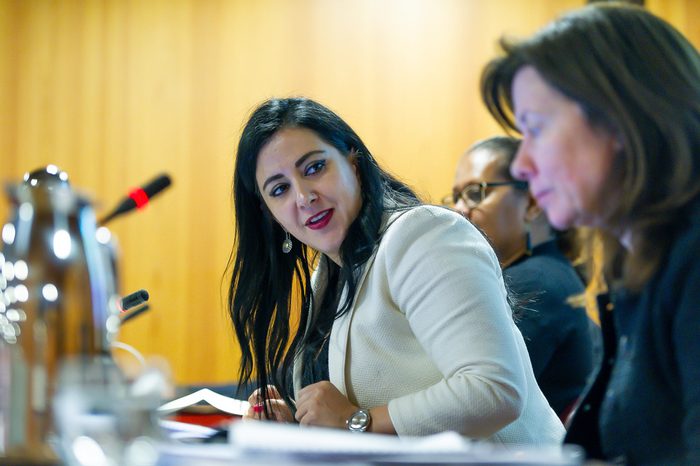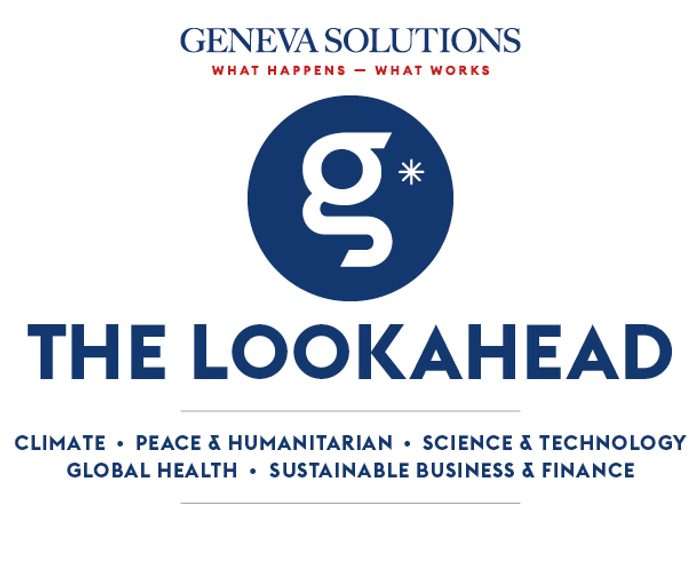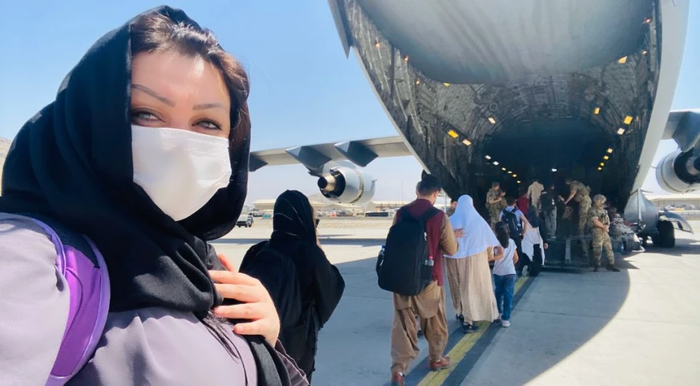Good morning, this is Pip. Today, we’re talking to Hiba Qasas, a veteran peacebuilder and one of the key figures behind the Principles for Peace initiative.
Nearly a year since its launch, the initiative will convene its group of international experts in Geneva this week to reflect on what’s wrong with current approaches to peace, and how the peacebuilding world can create more inclusive and sustainable peace processes.
We are also keeping track this week of critical talks in Glasgow on one of the unfinished parts of the Paris Agreement – how countries should trade carbon offsets. |

|

Hiba Qasas at the GFDRR World Reconstruction Conference 4 Geneva, May 2019. (Credit: GFDRR)
|
|
🕊‘Peace is more than a political process’
The Principles for Peace initiative is looking to reshape the way the world approaches peacebuilding by developing new principles to make peace processes more inclusive and sustainable. The initiative's International Commission of experts have spent the past year consulting with local and national actors to better understand the needs of the people directly affected by conflict. They meet this week in Geneva to discuss their findings before continuing consultations until Spring 2022. Ahead of the meeting, Geneva Solutions spoke to the initiative’s secretariat Hiba Qasas to discuss its progress so far.
Geneva Solutions (EN)
|
|
📈 Hope for carbon markets.
Finalising the rulebook on carbon trading has emerged as that which could make or break this Cop26. Negotiators got further than ever before last week as they delved into some of the knitty gritty details of the infamous article 6, pulling out three final draft texts that will be bumped up to ministerial level talks this week.
Geneva Solutions (EN)
|
|
Here’s what else is happening
|
|
Dispatches from women in Afghanistan
|
|
|
‘I felt like a bird flying away, but her nest remains’.
For the last 20 years, Afghan women activists have been the front-runners of justice for other women in the country. Women leaders have been forging a future where gender equality wouldn't be just a dream. But now these heroines have either been displaced to every corner of the world or are hiding in the homeland out of fear. Zarmina Kakar, a 26-year-old human rights activist and former spokeswoman of the Electoral Complaints Commission, recounts her escape from Afghanistan to London.
Geneva Solutions (EN)
|
|
Girls return to high school in some regions of Afghanistan.
Since the Taliban took control of Afghanistan on 15 August, secondary schools for girls have remained closed in most provinces across the country, including the capital Kabul. But in some northern provinces like Balkh, Kunduz, and Sar-e-Pul local authorities have taken a different approach, and managed to keep girls in the classroom without attracting the ire of the Taliban.
Geneva Solutions (EN)
|
|
|
GS news is a new media project covering the world of international cooperation and development. Don’t hesitate to forward our newsletter!
Have a good day!
|

|
|
Avenue du Bouchet 2
1209 Genève
Suisse
|
|
|
|









